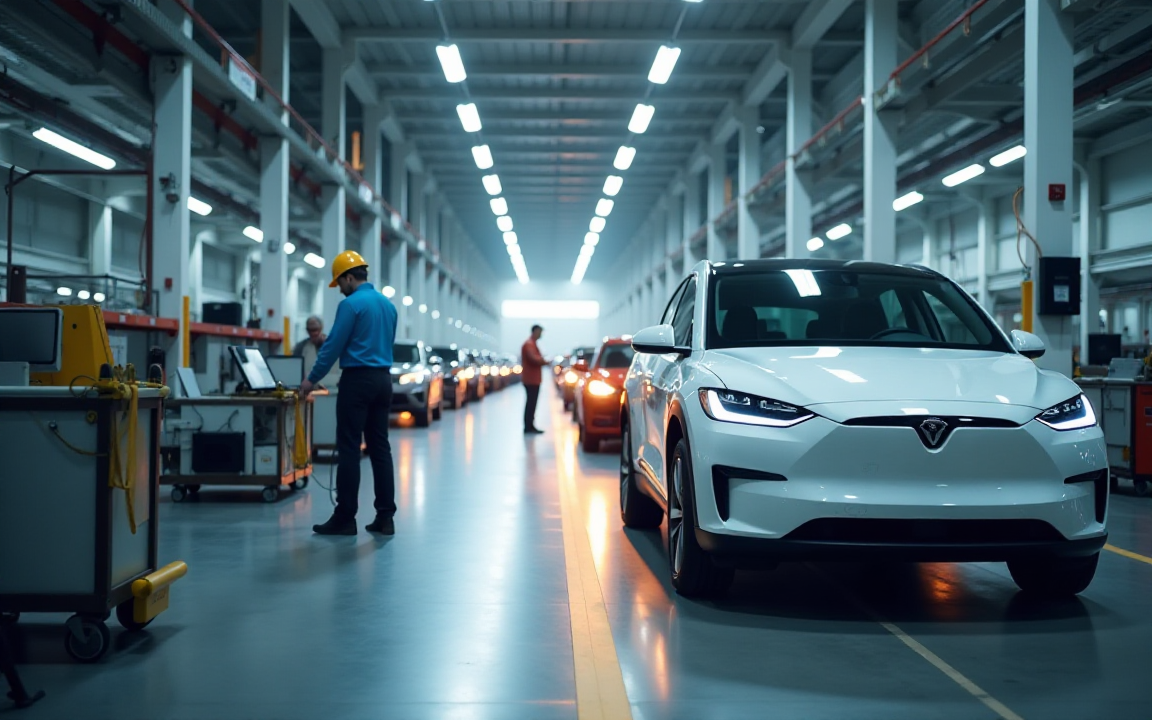The world’s largest vehicle transport ship, capable of transporting the equivalent of 20 football fields of cars, finished its maiden journey in late May, anchoring at Brazil’s Itajaí port.
However, the excitement surrounding the marine milestone was overshadowed by growing concerns in Brazil’s automotive sector.
According to Reuters, the ship transported a new batch of vehicles from China’s BYD, the world leader in electric and plug-in hybrid vehicle manufacture. It was the fourth shipment of BYD vehicles to Brazil this year, bringing the total to almost 22,000 units.
The arrival is part of BYD’s ambitious expansion into overseas markets with its growing fleet of specialised cargo ships. However, some in the Brazilian sector are raising concerns.
Brazil’s growing appetite meets China’s surplus strategy
With a domestic production surplus at hand, China has swiftly turned from importing cars to exporting them from its automotive industry.
Brazil is a primary target for this strategy because of its enormous car market and favourable tariff structure.
This year, China-built vehicle imports to Brazil are expected to climb by 40% to around 200,000 units, accounting for 8% of all light vehicle registrations. Chinese manufacturers, such as BYD, are driving this growth.
While Brazilian customers are gradually warming up to EVs, domestic production remains limited.
Chinese imports now dominate Brazil’s green car sales, accounting for more than 80% of electric vehicle registrations.
The inflow of low-cost models from China provides economical options in a market that is just beginning to convert to electric mobility.
Tariffs, delays, and labour concerns cloud the local industry outlook
Auto makers and labour leaders in Brazil are becoming increasingly uneasy. Industry groups argue that Chinese firms are taking advantage of Brazil’s temporarily low import tariffs without making significant local investments.
The national government is currently phasing its plan to increase the EV import tariff from 10% to 35% by 2026, but stakeholders are lobbying to lift the date to save local jobs and investment.
BYD’s plan to start production at a former Ford facility in Bahia has been pushed back until the end of 2026.
Delays have been exacerbated by a preliminary inquiry into labour infractions on the construction site.
Labour unions report no new local supplier relationships or technological transfers from the BYD factory.
Another Chinese manufacturer, GWM, has also delayed production at its Brazilian plant, but it is expected to begin operations this year.
GWM has started negotiations with approximately 100 local suppliers to assist its impending domestic production.
A market caught between jobs and environmental goals
The Brazilian administration is attempting a tricky balancing act. On the one hand, it aims to protect jobs and promote industrial development.
On the other hand, it intends to meet environmental promises ahead of the COP30 climate meeting, which it will host later this year. China’s dominance in EV imports hampers both objectives.
While Brazil has the mineral resources required to support an EV supply chain, notably lithium, it lacks the local infrastructure to produce crucial components on a large scale.
This imbalance makes the country reliant on Chinese imports in the short term, despite efforts by local authorities and industry advocates to increase self-reliance.
As Brazil considers how to respond, Chinese manufacturers continue to advance swiftly, taking advantage of current favourable policies.
The window for shaping an indigenous EV industry may be closing, and many in Brazil’s auto sector believe that tougher action is required right now.
The post China’s BYD floods Brazil with EVs, sparking industry fears and tariff hike calls appeared first on Invezz
